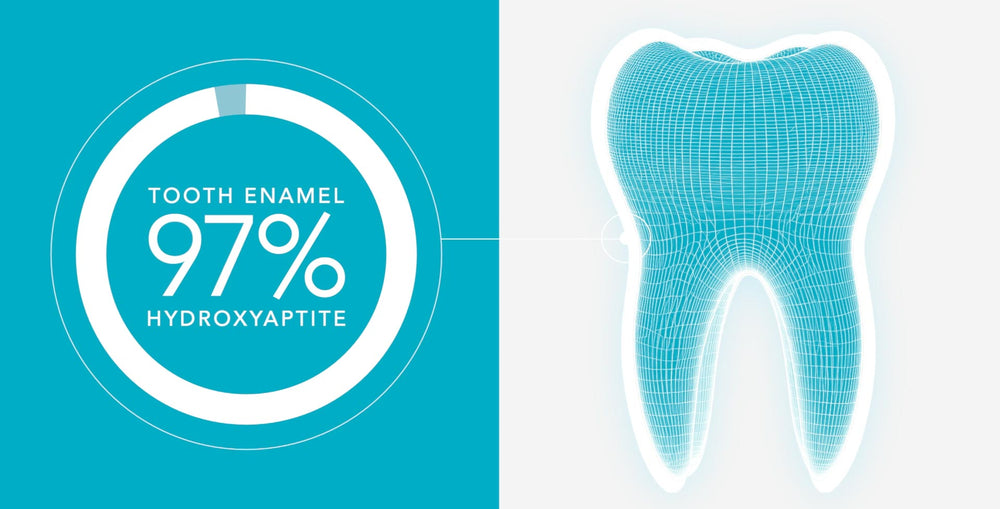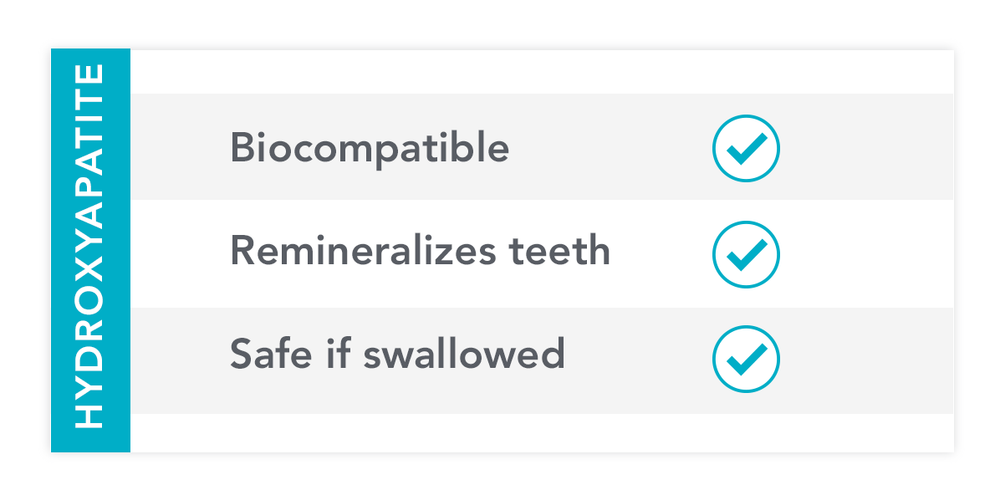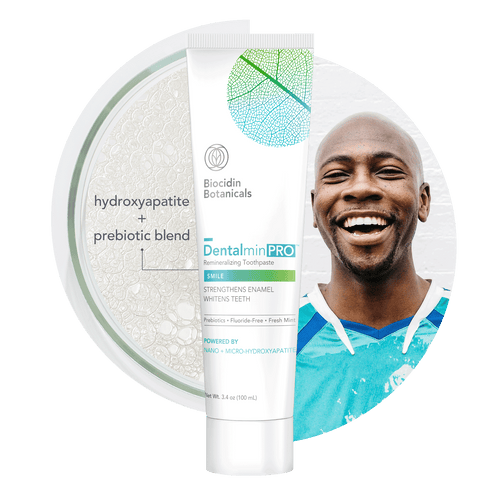
Hydroxy-what? Move Over, Fluoride — There's a New Mineral in Town
Get to know hydroxyapatite — and what it can do for your teeth It’s a mouthful to pronounce – and it’s the cool new kid on the block when it comes ...
Learn MoreIt’ll give you minty, fresh breath!
You hear that everywhere about toothpaste, right?
Whitens. Improves. Contains fluoride.
But did you know there are new studies (and a court ruling) about fluoride that you should be aware of? Let's talk about fluoride, why it might be worth reevaluating, and why you might want to switch to a toothpaste containing hydroxyapatite.
Since the 1940s, fluoride has been added to public water supplies and dental products to help prevent tooth decay. The idea was simple: strengthen tooth enamel, fight bacteria, and voila – fewer cavities! For years, it seemed like a no-brainer.
But studies have provoked some concerns about the safety of fluoride.
In August 2024, the National Toxicology Program released a monograph about a possible relationship between high fluoride exposure, neurodevelopmental and cognitive health, and IQ. A 2019 study published in JAMA Pediatrics found a link between fluoride exposure during pregnancy and lower IQ scores in children. These studies, among others, have sparked a debate in the scientific community about the potential risks of fluoride exposure. And in Sept, 2024, a federal court in California ordered officials to take actions over concerns about potential health risks from fluoride in the American drinking water supply.
The U.S. Food and Drug Administration (FDA) has been paying attention, too. Since 1997, the FDA has required a label warning about fluoride for children under six years of age – which advises using only a smear of toothpaste and supervising brushing to prevent swallowing. This move suggests that even regulatory bodies are recognizing the need for caution when it comes to fluoride exposure.

So, what's a health-conscious person to do?
Maybe consider alternatives, like hydroxyapatite – a naturally occurring form of calcium that makes up 97% of our tooth enamel. It’s now available in a few toothpaste brands, like our new Dentalmin PRO™.
Because everyday activities, like chewing and eating sweets or acidic foods, can weaken enamel. And that’s why Dentalmin PRO™ contains two science-backed forms of hydroxyapatite to strengthen, whiten, and reduce sensitivity. (Some toothpastes only contain one form.)

Here's why hydroxyapatite is sparkling right now in the dental world:
A 2019 study in the Journal of Dental Research found that hydroxyapatite toothpaste was as effective as fluoride in preventing cavities. Plus, it whitens teeth and reduces sensitivity. That’s a lot of winning!

If you’re interested in forgoing fluoride, here are a few tips:
Remember, dental health isn't just about avoiding cavities. It's about maintaining a healthy oral microbiome and keeping your whole body healthy.
While fluoride has played a significant role in dental health for decades, it's worth taking a second look due to new information. Hydroxyapatite offers an exciting alternative that may align with your values: efficacy, safety, and a more natural approach to health.
As always, consult with your dentist before making any significant changes to your dental routine. They can provide personalized advice based on your specific oral health needs. Or if you’re considering a new dentist, read Why You Might Need a New Dentist and How to Find One.
Currently on backorder.
Dentalmin PRO™ toothpaste strengthens and whitens teeth while reducing sensitivity. Dentist-formulated, it offers not one but two forms of hydroxyapatite plus botanical probiotics to nourish the oral microbiome.
Get to know hydroxyapatite — and what it can do for your teeth It’s a mouthful to pronounce – and it’s the cool new kid on the block when it comes ...
Learn MoreBy Cass Nelson-Dooley, MS Did you know your oral health is a good indicator of your overall health? Yep, what goes on in your mouth can affect orga...
Learn More
